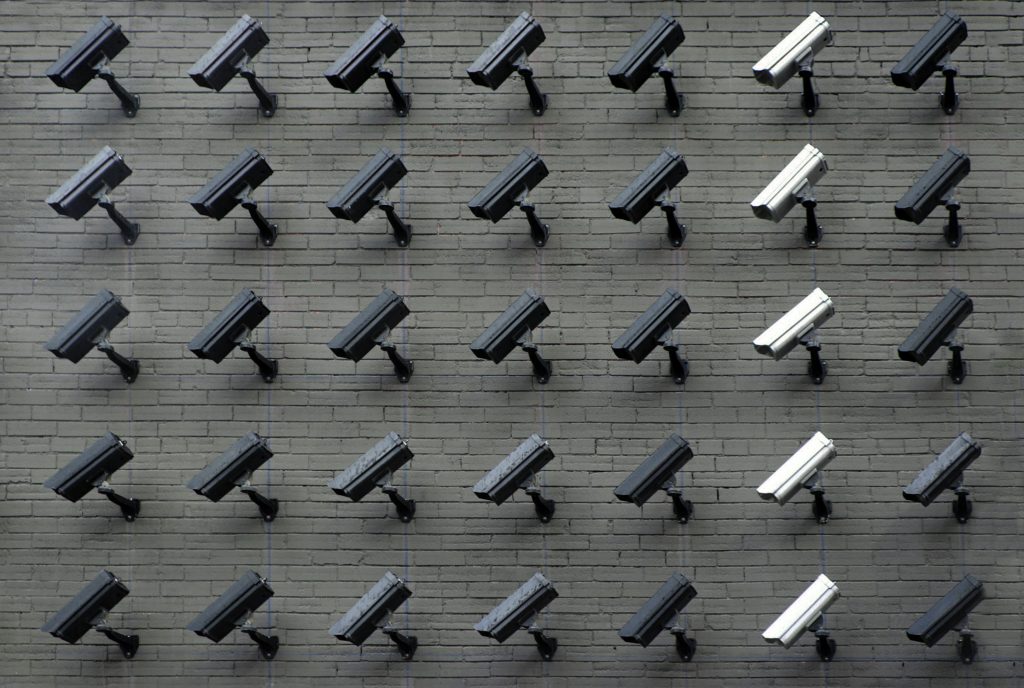The Tech Cold War: Geopolitics Amid COVID-19
PDF Available
By: Tyler Godbehere*
On April 28th, the U.S. Department of Commerce, Bureau of Industry and Security (BIS) announced new rules restricting exports to China, Russia, and Venezuela. These changes to the Export Administration Regulations (EAR) remove license exceptions[1], mandate additional reporting requirements[2], and provide broad licensing requirements for all “military end users.”[3] Changes to export controls represent a major shift in U.S. policy since President Trump took office.
In 2017, the White House issued the National Security Strategy of the United States (NSS), noting that “China and Russia challenge American power, influence, and interests, attempting to erode American security and prosperity.”[4] The Trump Administration utilized Export Controls and the Entity List[5] to confront China on trade and national security concerns. Most notably, the Trump Administration blacklisted Huawei, the Chinese manufacturer of telcom equipment with the potential to monopolize the global 5G market.[6] America fears that the Chinse government can intercept data on its 5G networks and use this information to sabotage rival countries.[7]
These new rules will significantly impact numerous industries―including aviation, lasers and sensors, semiconductors, and chemicals―that benefited from the license exceptions and prior understanding of “military end use and user.” From a licensing perspective, companies must perform due diligence to ensure their customers intend to use the export for civilian purposes. However, this is easier said than done, because in countries like China, the funding and research of commercial sectors are often intertwined with military efforts.[8] This may result in delayed transactions for U.S. companies requiring an export license for previously exempt transactions.
Regarding militaristic exports, the rule now includes any “military end users” in China.[9] Additionally, the definition of “military end use” is expanded to now include “any item that supports or contributes to the operation, installation, maintenance, repair, overhaul, refurbishing, ‘development,’ or ‘production,’ of military items.”[10] These changes reflect the Trump Administration’s efforts to implement a protectionist foreign policy through export controls; but what will the long-term impact of this policy be for U.S. companies?
There is no denying the merit behind protecting American technology, particularly with military uses. However, the only problem with this protectionist policy is that is serves as additional incentive for China to strive for technological self-sufficiency.[11] Broad restrictions and a presumption of denial in the export process suggests that fear drives these policies—which is particularly concerning for a country rooted in capitalism. In a response to the new export rules, the Semiconductor Industry Association President John Neuffer recognized that “while we understand military-civil fusion trends demand smart and targeted national security responses, we are concerned these broad rules will unnecessarily expand export controls for semiconductors and create further uncertainty for our industry during this time of unprecedented global economic turmoil.”[12] The global semiconductor industry accounted for over $400 billion in revenue for 2019, a decrease of 12 percent from the previous year.[13] As American companies are losing customers, suppliers, and profits, Chinese companies such as Huawei are finding alternative sources for U.S. import components.[14]
With an increasing number of employees working remotely amid COVID-19, mobile networks have become more vital than ever. In the short term, telecommuting increases the risk that employees will inadvertently transfer regulated technology and technical data. Export requirements are triggered by an export, reexport, or transfer to a foreign person—regardless of whether that person is located within the United States. With broadening export control regulations, companies must perform due diligence about the conduct, nationality, and items’ end use internally and with their customers’. More importantly however, the Trump Administration must work with American companies to accelerate the research and development of mobile networks. Protectionism will not allow America to “win the tech cold war,” and a new approach is imperative to ensure that China does not control the global digital infrastructure.
[1] 85 Fed. Reg. 23496-98 (Apr. 28, 2020).
[2] 85 Fed. Reg. 23459-70 (Apr. 28, 2020).
[3] 85 Fed. Reg. 23470-73 (Apr. 28, 2020).
[4] Exec. Office of the President, National Security Strategy of the United States of America, (December 2017), https://www.whitehouse.gov/wp-content/uploads/2017/12/NSS-Final-12-18-2017-0905.pdf.
[5] See Supplement No. 4 to 15 C.F.R. §§ 744 (“BIS first published the Entity List in February 1997 as part of its efforts to inform the public of entities who have engaged in activities that could result in an increased risk of the diversion of exported, reexported and transferred (in-country) items to weapons of mass destruction programs.”).
[6] Telecommunications: 5Geopolitics, The Economist, Apr. 11, 2020, at 47.
[7]America v China: Huawei and 5 Geopolitics, The Economist, Apr. 11, 2020, at 10 [hereinafter America v China].
[8] See Office of the Secretary of Defense, Military and Security Developments Involving the People’s Republic of China 2019, Annual Report (May 2019), https://media.defense.gov/2019/May/02/2002127082/-1/-1/1/2019_CHINA_MILITARY_POWER_REPORT.pdf (“China has mobilized vast resources to fund research and subsidize companies involved in strategic science and technology fields while pressing private firms, universities, and provincial governments to cooperate with the military in developing advanced technologies.”).
[9] 85 Fed. Reg. 23459 (Apr. 28, 2020).
[10] Id. at 23460.
[11] America v China, supra note 7.
[12] Adam Behsudi, A Potential Game Changer for China Export Controls, Politico (Apr. 28, 2020, 10AM), https://www.politico.com/newsletters/morning-trade/2020/04/28/a-potential-game-changer-for-china-export-controls-787183.
[13] One in the AI: America Blacklists China’s Best Artificial-Intelligence Firms, The Economist, Oct. 12, 2019, at 67.
[14] Id.


